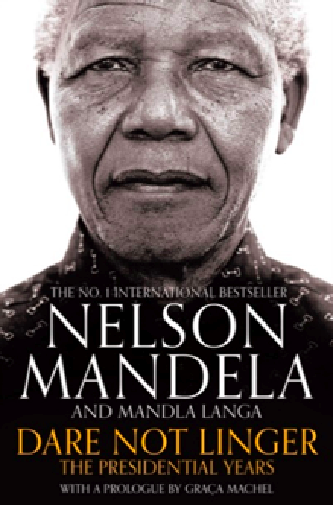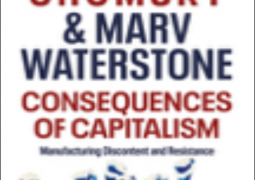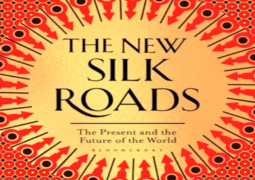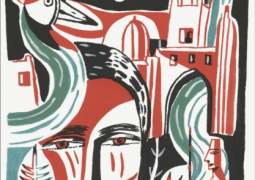
Six months after the 1994 election that brought the ANC to power, I was interviewing Ahmed Kathrada, then President Mandela’s parliamentary counsellor, when I heard the door behind me open. A look must have been exchanged because Kathrada stopped mid-flow to ask if I wouldn’t mind stepping out for a moment. As I was leaving, I heard the new arrival say: “He’s done it again.”
I knew that “he” must be Nelson Mandela and I had a good idea what he must have done. That evening’s news soon confirmed it: Mandela had gone off-piste again. Never the most riveting of speakers, he would, every now and then, galvanise his country’s attention by breaking away from the monotonously good stuff his speech writers had compiled to speak from the heart. I had taken this as an endearingly maverick but spur-of-the moment act by an otherwise disciplined man who always insisted that he served the collective. But reading Dare Not Linger, which the writer Mandla Langa (who, in the interests of full disclosure, is a friend of mine) has compiled from Mandela’s handwritten notes and from interviews, I learned that Mandela did this deliberately. It was his way of breaking away from a consensus with which he disagreed: he went along with the majority decisions of his cabinet but could not resist making his real point of view public.
He “did it again” in December 1997 during his farewell to the ANC conference. Then, as Langa writes, Mandela diverted from his speechwriter’s pages to caution the incoming leaders against surrounding himself with yes men and women. This he followed with a warning of the dangers when a leader hangs out with “powerful and influential individuals who have far more resources than all of us put together”.
Those words have acquired ever greater resonance in the 20 years that have passed since Mandela said them. This was brought home earlier this year, at Ahmed Kathrada’s funeral, where the seemingly unthinkable happened. Kathrada had spent decades in prison with Mandela and in a country that uses funerals to venerate its freedom fighters, and in particular those Robben Island veterans, the serving president of South Africa, Jacob Zuma, was conspicuous by his absence. Not that this was Zuma’s choice: he had stayed away only because the Kathrada family made it clear they did not want him there. Theirs was a protest that Kathrada himself had previously triggered. He was of Mandela’s generation, whose loyalty to the ANC (which, as Mandla Langa writes, “is an heirloom, passed down from one generation to the next”) had been absolute. But a year before his death, Kathrada broke his silence to publish an open letter to Zuma asking him to step down. This is how Kathrada ended his letter: “To paraphrase the famous MK [a shorthand for the ANC’s military wing, Umkhonto We Sizwe] slogan, there comes a time in the life of every nation when it must choose to submit or fight. Today, I appeal to our president to submit to the will of the people and resign.”
Zuma survived this challenge as he has also survived an arms scandal, a rape trial, a constitutional court judgment against him and allegations that the state has been captured by the Guptas, one of South Africa’s new rich. Given that he has surrounded himself with people who owe their position to him and is the head of an organisation that, despite internal differences, traditionally speaks with one voice, this survival is not in itself surprising. But the fact that a loyalist such as Kathrada should publicly break with his president was an indication of how serious a contravention of ANC principles is this rising corruption in government.
To read in Dare Not Linger of Mandela’s insistence on making his own hotel bed, or to look at the photo of him cleaning his own shoes on a plane, is to remember the man who, with his closest comrades, was responsible for the miracle of South Africa’s peaceful transition. But it is also to question what part those stalwarts, and in particular their leader, Mandela, played in laying the ground for South Africa’s current dystopia. After all, Mandela was succeeded by Thabo Mbeki, his chosen deputy, whose Aids denialism, according to a Harvard University study, led to the unnecessary deaths of 300,000 people. And then Mbeki’s attempt to cling on to the ANC presidency when his time as South Africa’s president was up led to Zuma’s ascendance. So how could it happen so fast?
In its exploration of the run-up to the 1994 election, Dare Not Linger goes some way to answering this question. Hindsight tells us that apartheid’s extreme right did not have the wherewithal to prevent an election that they knew the ANC would win. But Mandela’s account of his meetings with apartheid’s heavy hitters shows how serious the threat seemed at that time. Mandela was the great conciliator, the prisoner who invited his guards to presidential tea parties, and he was clearly personally comfortable with forgiveness, but what this book highlights is the way in which the need to end rising political violence explains many of his efforts to keep the old apartheid state on board including, at one time, discussing with the far right the possibility of them having their own mini-state – their volkstaat.
In the face of the far-right threat, Mandela’s call to move on from the past was understandable, while his stress on unity within his organisation was consistent with the way the ANC had functioned, particularly in its underground years. It had long been a broad front movement in which people with different political agendas, including communists, had banded together to bring about the end of apartheid (in their words, to achieve national liberation). This single-minded pursuit, together with Mandela’s generation’s early training in consensus decision-making, which is so well described in Long Walk to Freedom (the first volume of his autobiography), had kept the movement together in the most adverse of circumstances.
But it could be argued that the continuation, post-apartheid, of such a disciplined unity, when combined with an emphasis on reconciliation, has had consequences that are today playing themselves out. The rise of the Rhodes Must Fall movement, which began by attacking symbols of white power and has expanded into demands for a more complete historical redress, along with the protests against the failure of the state to deliver services, are two signs of the rising discontent in the country. On top of that, there are indications that people within the ANC may be readying themselves to break with previous traditions – several prominent ANC MPs have already voted with the opposition in a recent vote of no confidence against Zuma.
At the end of his preface to Dare Not Linger, Langa describes how at Mandela’s last ANC conference as leader, the singing crowd settled on a “valediction to a unique son and a sad admission that… South Africa would never be the same again. ‘Nelson Mandela,’ they sang, ‘there’s no other like him.’” Perhaps that is the problem: that he was so unique and he made it look so easy. That first peaceful democratic election was almost a miracle: tempting to assume that such effortlessness would continue. But given the constraints of the global economy, and South Africa’s terrible history, that now looks like magical thinking.
Reviewed by Gillian Slovo
Available at Timbooktoo tel 4494345




